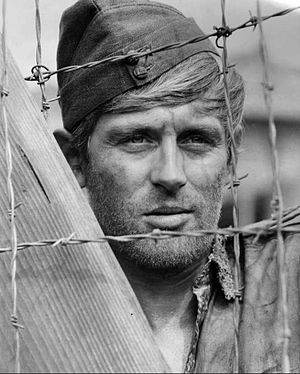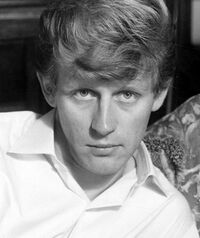John Leyton: Difference between revisions
(Created page with "Category:Influences on Morrissey - Music ==Relevance== {{Page |DiscogsArtistId=325094 |WikipediaPageTitle=John_Leyton }}") |
No edit summary |
||
| Line 1: | Line 1: | ||
[[Category:Influences on Morrissey - Music]] | [[Category:Influences on Morrissey - Music]] | ||
[[File:John Leyton.jpg | 200px | right | thumb |John Leyton]] | |||
==Relevance== | ==Relevance== | ||
{{Page | {{Page | ||
Latest revision as of 13:35, 3 April 2023
Relevance
Mentioned In
- Portrait Of The Artist As A Consumer - NME (September 17, 1983)
- My Top Ten - BBC Radio One (1984)
- Yeahs And Yeuks - No. 1 (1985)
Discogs Information
Profile
British singer/actor born on February 17, 1936 in Frinton-on-Sea, Essex.
External Links
Wikipedia Information
 |
John Dudley Leyton (born 17 February 1936) is an English retired actor and singer. Leyton as a singer is best known for his hit song "Johnny Remember Me" (written by Geoff Goddard and produced by Joe Meek), which reached number one in the UK Singles Chart in August 1961 despite being banned by the BBC for its death references. His follow-up single, "Wild Wind", reached number two in the same chart. Alongside singing, Leyton's acting career saw him appearing in television and films throughout the 1960s. His films included The Great Escape, Guns at Batasi, Von Ryan's Express and Krakatoa, East of Java. In 2009, he also had a small role in the film Telstar, a biopic based on Joe Meek's life in which Leyton himself was portrayed by Callum Dixon.
